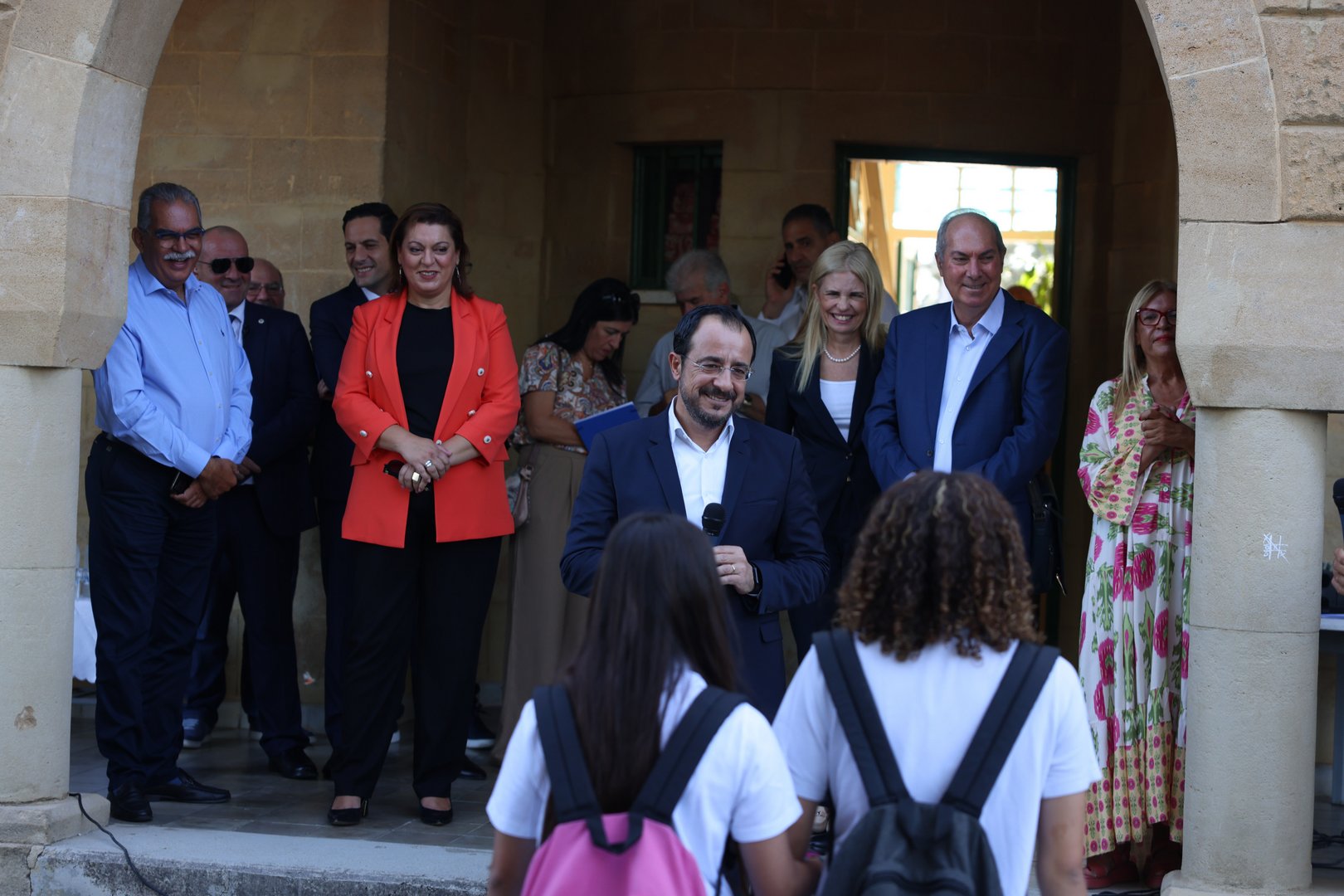President Christodoulides was present at Acropolis gymnasium for the first day of the new school year on Thursday, talking to children and asking them how they felt to be back at school. He also asked what should be changed to make the children there happier. They said the installation of air-conditioners in classrooms would make them happier, while one wanted assurance that the twice-yearly exams, abolished by popular demand, would not be re-introduced.
The exam issue had been resolved said the president, who also promised that in three years’ time there would be ACs in all classrooms. The lack of ACs in public schools has become the biggest issue troubling public education. It is considered of greater importance than the steadily declining educational standards, low literacy levels, poor discipline, the need for private lessons and the complete unionisation of public education, dominated by teaching unions and fervently supported by parents’ associations and student groups.
In fact, the issue of ACs is one of the favourite deflection tactics of the teaching unions. For example, when previous education ministers raised the topic of the evaluation of teachers – something teaching unions have been successfully resisting for close to two decades – union bosses would bring up the lack of ACs in classrooms. More recently they have also used the curriculum twice-yearly exams as deflection tactics. The AC issue has also been adopted by parents’ associations, making it the main problem of public education.
It has even been adopted as such by opposition Akel, which always aligns itself with teaching unions. On Thursday, Akel deputy Christos Christofias, exposed the big AC scandal by listing the number of times the Anastasiades government had announced the installation of ACs in classrooms but failed to deliver and expressed hope that this time the presidential promise would be kept. Christofias said that without ACs “our children and our teachers are in a very difficult situation.”
Are they really? Is it the reason public education standards have been steadily declining? Students were performing better 30 years ago, when there were no ACs in any classrooms and they were also “in a very difficult situation.” It was not any cooler in Cyprus in the ‘90s, but unions had not yet adopted the lack of ACs as a deflection tactic back then. Perhaps union bosses could propose a 5 per cent pay-cut for all teachers and the government could use the money it saves on the education budget to install ACs in all school classrooms. This would ensure union members no longer have to suffer the “very difficult situation,” Christofias spoke about.
Teaching unions have managed to make the lack of ACs the main problem facing public education, which has been letting down children for years with its poor standard of teaching that the employer is not allowed to evaluate. And parents associations have naively accepted that the problems in education will be solved once ACs are installed in all school classrooms.







Click here to change your cookie preferences